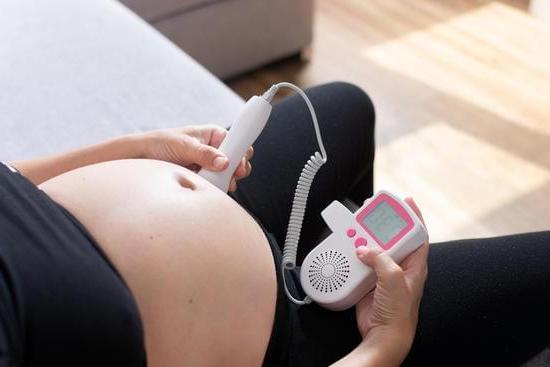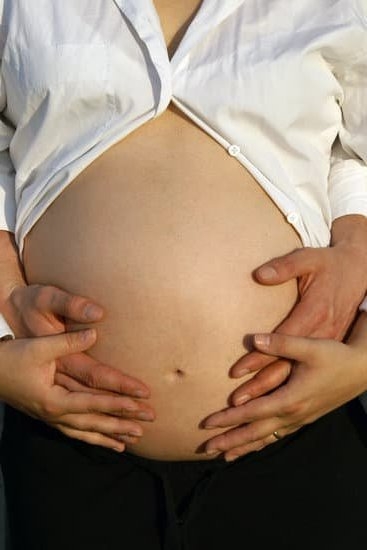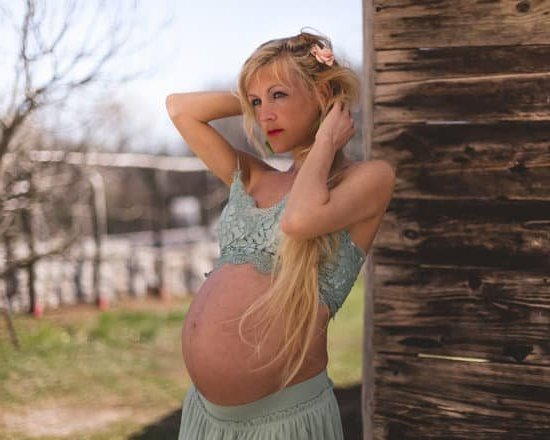Early pregnancy is a pivotal time in a woman’s life, marked by the excitement and anticipation of what lies ahead. Recognizing the early signs of pregnancy is crucial for both maternal health and the well-being of the developing fetus.
From missed periods to morning sickness, these signs can vary from subtle to more pronounced indications of a new life growing within. Understanding these signs and symptoms can lead to better prenatal care and overall health during this crucial period.
In this blog post, we will delve into the realm of early pregnancy, shedding light on what it entails and why it is essential to be aware of its signs. We will explore common indicators like fatigue, breast tenderness, and morning sickness that many expectant mothers experience as their bodies undergo significant changes.
Additionally, we will touch upon lesser-known signs such as implantation bleeding, which can be a signifier of early pregnancy that often goes unnoticed or mistaken for a regular menstrual cycle.
As we navigate through the intricacies of early pregnancy in this blog post, it is important to remember that every woman’s experience is unique. While some may exhibit all the classic symptoms like clockwork, others may have more subtle or even atypical indications of pregnancy. By gaining knowledge about these signs and symptoms, women can empower themselves to take charge of their health and seek appropriate medical guidance for a smooth journey through pregnancy.
What Is Early Pregnancy?
Early pregnancy refers to the initial stages of pregnancy, typically occurring within the first few weeks after conception. This period is crucial as it marks the beginning of a significant journey towards motherhood. Recognizing early signs of pregnancy is essential for expecting mothers to ensure proper prenatal care and support for a healthy pregnancy. Understanding what early pregnancy entails can help women better prepare themselves both physically and emotionally for the changes ahead.
During early pregnancy, a woman’s body undergoes several physical changes as it adjusts to the presence of a growing embryo. This period is characterized by hormonal fluctuations that can lead to various symptoms. Many women experience common signs such as missed periods, morning sickness, fatigue, and breast tenderness during this time.
These symptoms may vary in intensity and duration from woman to woman but are generally considered typical indicators of pregnancy. However, it is important to note that these signs alone may not always be definitive proof of pregnancy.
Signs of Early Pregnancy: Implantation Bleeding
One lesser-known but significant sign of early pregnancy is implantation bleeding. This occurs when the fertilized egg attaches itself to the uterine wall, causing slight spotting or light bleeding. Implantation bleeding is often mistaken for a regular period due to its timing around when a woman would expect her menstrual cycle.
However, implantation bleeding tends to be lighter in flow and shorter in duration compared to a typical period. For many women, this subtle sign may be one of the earliest indications that conception has occurred and should not be ignored when considering potential pregnancy.
Common Signs and Symptoms
During the early stages of pregnancy, the body undergoes numerous changes as it prepares to nurture a growing fetus. Recognizing and understanding these signs and symptoms is crucial for expectant mothers to ensure proper prenatal care and a healthy pregnancy. While some signs may be more well-known, such as morning sickness and fatigue, there are other subtle indicators that could also signify early pregnancy.
One of the most common signs of early pregnancy is a missed period. When a woman’s menstrual cycle is disrupted and she has not had her period on time, it can often be seen as a sign of early pregnancy. The fluctuation in hormone levels that occurs during pregnancy can affect the regularity of the menstrual cycle.
Additionally, morning sickness, characterized by nausea and vomiting typically in the mornings but can occur at any time of the day, is another telltale sign of early pregnancy. This symptom usually begins around 6 weeks into pregnancy.
Moreover, many women experience breast tenderness during early pregnancy due to hormonal changes in preparation for breastfeeding. The breasts may feel sore or swollen, making them more sensitive than usual.
Along with these symptoms, fatigue is also commonly observed in pregnant women as the body works overtime to support the growth and development of the baby. These combined signs are often considered collectively as a sign of early pregnancy and serve as important markers for expectant mothers to pay attention to for confirming their condition.
A Sign of Early Pregnancy
Early in pregnancy, many women experience various signs and symptoms that indicate the beginning of this life-changing journey. One of the less commonly known but significant signs of early pregnancy is implantation bleeding.
This type of bleeding can often be mistaken for a light period, but it is actually a sign that the fertilized egg has attached itself to the lining of the uterus. Implantation bleeding typically occurs around 10 to 14 days after conception, which aligns with the timing of a woman’s expected period.
Implantation bleeding is usually much lighter and shorter in duration compared to a regular menstrual period. It may appear as light spotting or pinkish/brown discharge and can sometimes be accompanied by mild cramping. While not all women experience implantation bleeding, those who do may mistake it for an early menstrual cycle. However, this distinctive sign is one that should be noted as a possible sign of early pregnancy.
Since implantation bleeding occurs around the time when a woman would expect her period, it can easily go unnoticed or be dismissed as just another menstrual irregularity. However, recognizing this sign along with other common symptoms like morning sickness or breast tenderness can aid in confirming early pregnancy.
If you have concerns about whether you might be pregnant based on experiencing implantation bleeding or other signs, consider taking a pregnancy test for accurate confirmation before seeking medical advice from a healthcare provider.
| Implantation Bleeding | Details |
|---|---|
| Timing | Around 10-14 days after conception |
| Appearance | Light spotting or pinkish/brown discharge |
| Difference from Period | Shorter duration and lighter flow compared to regular menstruation |
Other Less Common Signs
During the early stages of pregnancy, women may experience a variety of symptoms that are not as well-known as classic signs like morning sickness and breast tenderness. These lesser-known signs can also serve as indications of pregnancy and should not be ignored. Recognizing these less common signs can play a crucial role in seeking timely prenatal care and ensuring a healthy pregnancy.
Some of the lesser-known signs of early pregnancy include frequent urination, food aversions, and mood swings. Here is a breakdown of each:
- Frequent urination: Increased trips to the bathroom, particularly during the night, can be a sign of early pregnancy. This symptom is due to hormonal changes that lead to increased blood flow to the kidneys.
- Food aversions: Many pregnant women find themselves repelled by foods they once enjoyed or have strong cravings for specific items. These sudden changes in taste preferences can be an indication of early pregnancy.
- Mood swings: Hormonal fluctuations during early pregnancy can lead to emotional changes such as mood swings, irritability, or weepiness. It’s important to recognize these shifts in emotions as potential signs of pregnancy.
While these less common signs may not always be immediately associated with pregnancy, they can still be significant indicators. Paying attention to your body and noting any unusual symptoms can help you identify a possible sign of early pregnancy. If any of these signs persist or cause concern, it is advisable to consult with a healthcare provider for further evaluation and guidance on prenatal care.
Overall, staying informed about both common and less common signs of early pregnancy is essential for every woman who may potentially conceive. Being aware of these different symptoms can lead to earlier detection of pregnancy and prompt initiation of necessary prenatal care. Remember that every woman’s body is unique, so individual experiences with early pregnancy signs may vary.
Pregnancy Testing
It is essential to note that not all pregnancy tests are created equal. Some tests are more sensitive than others and can detect lower levels of hCG earlier on in the pregnancy process. This sensitivity can vary from brand to brand, so choosing a reliable and accurate test is important. Additionally, following the instructions on the test kit carefully will ensure proper usage and more reliable results.
In cases where there is doubt about the accuracy of a home pregnancy test or if there are unusual symptoms present, consulting with a healthcare provider for a confirmatory blood test may be necessary. Blood tests can measure the exact level of hCG in the blood, providing more precise information about the stage of pregnancy. This step is particularly crucial for women with irregular menstrual cycles or underlying health conditions that may affect hormone levels.
| Importance of Pregnancy Testing | Key Points |
|---|---|
| Confirming early signs of pregnancy | Home pregnancy tests detect hCG levels in urine |
| Choosing accurate tests | Different brands offer varying levels of sensitivity |
| Consulting healthcare providers | Blood tests provide precise information for confirmation |
Seeking Medical Advice
When a woman suspects she may be pregnant, it is crucial to seek medical advice promptly to ensure the best possible outcome for both her and her baby. Consulting with a healthcare provider early on can help confirm the pregnancy and start prenatal care which is essential for a healthy pregnancy journey. Here are some important steps to consider when seeking medical advice in the early stages of pregnancy:
- Schedule an appointment: As soon as you suspect you might be pregnant, make an appointment with your healthcare provider to confirm the pregnancy and discuss next steps.
- Share your symptoms: Be sure to communicate any signs of early pregnancy you have been experiencing, such as missed periods, morning sickness, or fatigue. This information can help your healthcare provider accurately assess your situation.
- Discuss any concerns: If you have any worries or questions about your pregnancy, do not hesitate to bring them up during your appointment. Your healthcare provider is there to address your concerns and provide support.
Remember that early prenatal care is critical for both maternal and fetal health. Your healthcare provider will guide you through the necessary tests, screenings, and lifestyle changes to ensure a smooth and healthy pregnancy journey. By seeking medical advice promptly upon noticing signs of early pregnancy, you are taking an important step towards ensuring a positive outcome for you and your baby.
Conclusion
In conclusion, recognizing early signs of pregnancy is crucial for ensuring a healthy start to this significant journey. From missed periods to morning sickness and fatigue, the common symptoms of early pregnancy can vary from woman to woman.
However, one lesser-known yet important sign to watch out for is implantation bleeding, which occurs when the fertilized egg attaches itself to the uterine lining. This can often be mistaken for a light period, highlighting the importance of understanding these subtle but essential indicators.
Beyond the more well-known signs, less common symptoms like frequent urination, food aversions, and mood swings can also serve as a sign of early pregnancy. While not as overt as other symptoms, these subtle changes in the body should not be overlooked.
Regular pregnancy testing is key in confirming suspicions of early pregnancy, providing accurate results that can guide appropriate prenatal care. Seeking medical advice upon experiencing any signs or symptoms is vital in ensuring proper guidance and care throughout the early stages of pregnancy.
In essence, staying informed and attuned to your body’s signals can lead to better outcomes during early pregnancy. By recognizing both common and less typical signs such as implantation bleeding and unusual aversions or mood swings, individuals can take proactive steps towards seeking medical advice and beginning necessary prenatal care.
Empowering oneself with knowledge about these early signs not only supports a smoother transition into pregnancy but also sets a positive foundation for the health and well-being of both mother and baby.
Frequently Asked Questions
How Early Do Pregnancy Symptoms Start?
Pregnancy symptoms can start as early as 1-2 weeks after conception, even before a missed period. Common early signs include fatigue, breast tenderness, nausea, and frequent urination.
How Early Can You Tell if You Are Pregnant?
It is possible to tell if you are pregnant as early as 7-10 days after conception through a pregnancy test. Some women may also experience implantation bleeding or mild cramping as early signs.
What Are the Symptoms of Pregnancy at Week 1?
Symptoms of pregnancy at week 1 may not be noticeable yet since fertilization typically occurs during this time. However, some women may experience mild fatigue or mood swings due to hormonal changes right after conception but it varies from person to person.

Welcome to my fertility blog. This is a space where I will be sharing my experiences as I navigate through the world of fertility treatments, as well as provide information and resources about fertility and pregnancy.





